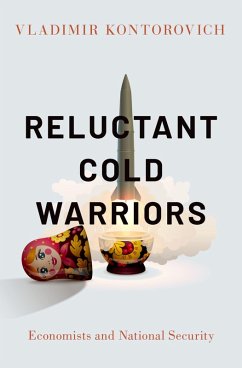Scholars attribute the collapse of the Soviet Union in part to the militarization of its economy. But during the Cold War, economic studies of the USSR largely neglected the military sector of the Soviet economy-its dominant and most successful part. This is all the more puzzling in that academic study of the Soviet economy in the US was specifically created to help fight the Cold War. If the rival superpower maintained the peacetime war economy, why did experts fail to tell us when it mattered? Vladimir Kontorovich shows how Western economists came up with strained non-military interpretations of several important aspects of the Soviet economy which the Soviets themselves acknowledged to have military significance. Such "civilianization" suggests that the neglect of the military sector was not forced on scholars of the Soviet economy by secrecy; it was their choice. The explanation of this choice in
Reluctant Cold Warriors raises many questions about the internal workings of economic Sovietology and its intellectual and political background. Are peripheral academic fields mimicking the agenda of the discipline's mainstream more likely to produce faulty scholarship? Did the search for the essence of socialism distract researchers from the actual Soviet economy? Were economic Sovietologists under political pressure, and if so, in what direction? This book answers these questions in a way that has broad relevance for national security uses of social science today.
Dieser Download kann aus rechtlichen Gründen nur mit Rechnungsadresse in A, B, BG, CY, CZ, D, DK, EW, E, FIN, F, GR, HR, H, IRL, I, LT, L, LR, M, NL, PL, P, R, S, SLO, SK ausgeliefert werden.









